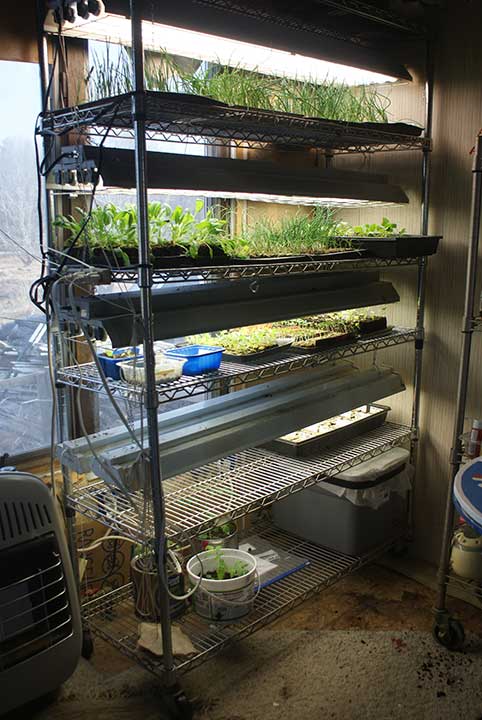
Indoor gardening offers a plethora of unexpected benefits that can positively transform your life. From enhancing air quality to reducing stress levels, the advantages of cultivating plants indoors are astounding.
Not only does it provide an aesthetically pleasing environment, but it also allows for year-round gardening and easy accessibility. Furthermore, indoor gardening offers educational value, promotes overall wellbeing and mental clarity, all while requiring minimal maintenance.
Discover the surprising advantages that indoor gardening can bring and embrace a newfound sense of freedom in your own space.
Improved Air Quality
Indoor gardening significantly enhances air quality by reducing pollutants and increasing oxygen levels within the confined space. The plants you choose for your indoor garden can play a crucial role in improving air quality.
Certain plants, such as aloe vera, spider plant, and peace lily, have been found to be effective in removing toxins like formaldehyde, benzene, and xylene from the air. These harmful substances are commonly found in household products and can have detrimental effects on our health. By incorporating these plants into your indoor garden, you can create a healthier indoor environment for yourself and your family.
Not only do these plants help purify the air, but they also release oxygen and moisture, making the air fresher and more breathable. The health benefits of improved air quality are numerous, including reduced allergies, improved lung health, and enhanced overall well-being.
Stress Reduction
Indoor gardening has been shown to have surprising benefits when it comes to stress reduction.
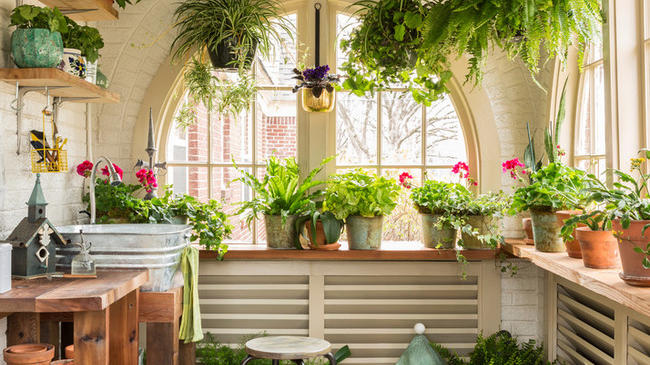
One of the key benefits is improved mental well-being, as spending time with plants and greenery can have a calming effect on the mind.
Additionally, the act of gardening itself can provide a sense of relaxation and serve as a form of therapy for many individuals.
Improved Mental Well-Being
One can experience a significant improvement in their mental well-being and reduction in stress through the practice of indoor gardening. Indoor gardening has been found to have several benefits for mental health, including improved focus and increased creativity.
Here are five ways indoor gardening can positively impact mental well-being:
- A natural stress reliever: Spending time with plants and nature has a calming effect on the mind, reducing stress levels and promoting relaxation.
- Enhanced mood: Indoor plants can create a soothing and uplifting environment, helping to improve mood and reduce symptoms of depression and anxiety.
- Increased mindfulness: Engaging in indoor gardening requires focus and attention, promoting mindfulness and helping to alleviate racing thoughts.
- Sense of accomplishment: Watching plants grow and thrive gives a sense of achievement and fulfillment, boosting self-esteem and overall well-being.
- Connection with nature: Indoor gardening allows individuals to reconnect with nature, providing a sense of peace and tranquility in the midst of busy daily routines.
Indoor gardening is a simple and accessible way to improve mental well-being, offering a sanctuary of calm and creativity in the comfort of your own home.
Relaxation Through Greenery
Engaging with greenery can promote relaxation and reduce stress levels, benefiting mental well-being. Mindful gardening, a practice that involves being fully present and attentive to the process of tending to plants, has been found to have a calming effect on the mind. By focusing on the sensory experience of gardening, such as the feel of soil, the smell of flowers, and the sound of rustling leaves, individuals can find respite from the pressures of daily life.
This form of natural therapy allows for a temporary escape from the demands of technology and provides an opportunity to reconnect with nature. The act of nurturing and caring for plants can also instill a sense of purpose and achievement, further enhancing relaxation and reducing stress.
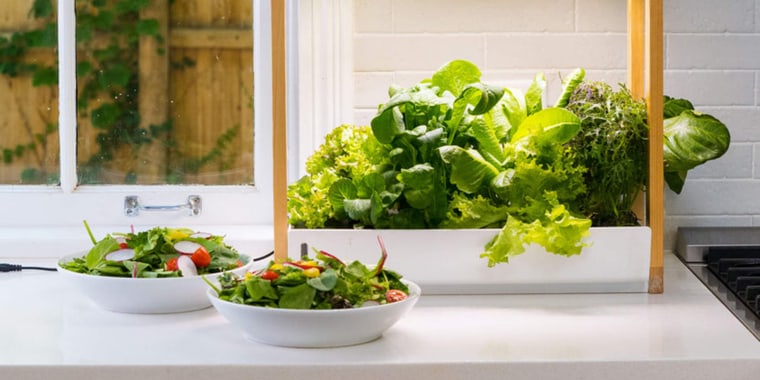
Incorporating greenery into indoor spaces can create a soothing environment that promotes mental well-being and invites a sense of freedom and tranquility.
Aesthetics
When it comes to indoor gardening, the aesthetic benefits are undeniable. By incorporating plants into your home decor, you can instantly enhance the overall appearance and create a more inviting space.
Not only do plants add a touch of natural beauty, but they also have the power to create a tranquil atmosphere, promoting relaxation and reducing stress.
Additionally, studies have shown that being surrounded by greenery can boost mood and productivity, making your indoor space not only visually appealing but also emotionally and mentally beneficial.
Enhancing Home Decor
Indoor gardening enhances home decor by adding natural elements that bring vibrancy and beauty to the living space. Not only does it create an aesthetically pleasing environment, but it also has a deeper impact on our well-being. Here are some ways in which indoor gardening enhances home decor:
- It enhances creativity: Indoor plants provide a canvas for creative expression. You can experiment with different plant combinations, colors, and textures to create unique and visually appealing arrangements.
- It promotes mindfulness: Taking care of indoor plants requires attention and focus. This can help promote mindfulness and create a sense of calm and tranquility in your home.
- It adds life to any room: Indoor plants breathe life into any space, making it feel more vibrant and inviting. They can be placed strategically to create focal points or to fill empty corners.
- It improves air quality: Indoor plants act as natural air purifiers by filtering out pollutants and releasing oxygen. This not only improves the air quality in your home but also promotes a healthier living environment.
- It connects us with nature: Indoor gardening allows us to bring a piece of nature indoors, even in urban environments. Being surrounded by greenery can help us feel more connected to the natural world and provide a sense of freedom and liberation.
Creating Tranquil Atmosphere
The addition of indoor plants to home decor further enhances the tranquil atmosphere by bringing a sense of serenity and harmony to the living space. Plants have a calming effect on the mind and body, creating a peaceful environment that promotes relaxation and reduces stress. Studies have shown that being surrounded by nature, even indoors, has positive effects on our well-being.
The presence of greenery can also improve air quality by purifying the air and increasing humidity levels. Additionally, indoor plants have been known to provide natural therapy, reducing symptoms of anxiety and depression. Incorporating plants into your home decor not only adds beauty and aesthetics but also promotes a sense of tranquility, making your living space a sanctuary for relaxation and rejuvenation.

Boosting Mood and Productivity
Adding indoor plants to your living space not only promotes tranquility but also enhances mood and productivity through their aesthetic appeal. The presence of greenery has a profound impact on our well-being, with certain plants known for their mood-boosting properties. Here are five mood-boosting plants that can help create a positive and productive environment:
- Aloe Vera: Known for its air-purifying properties, aloe vera also releases oxygen at night, promoting better sleep and increased focus during the day.
- Lavender: Its soothing scent can reduce anxiety and stress, creating a calming atmosphere that enhances productivity.
- Snake Plant: This low-maintenance plant releases oxygen at night, improving air quality and helping you wake up feeling refreshed and energized.
- Peace Lily: With its elegant white flowers, the peace lily not only adds beauty to your space but also filters harmful toxins from the air, improving overall air quality and promoting a sense of well-being.
- English Ivy: This versatile plant is known to reduce airborne mold and improve air quality, leading to increased focus and productivity.
Year-Round Gardening
Achieve optimal plant growth throughout all seasons by implementing a year-round gardening approach. Year-round gardening allows you to have a continuous harvest and maintain the health of your indoor plants.
By creating a controlled environment indoors, you can provide the perfect conditions for your plants to thrive, regardless of the external weather conditions. This means you can enjoy fresh herbs, vegetables, and fruits all year long, even during the winter months when outdoor gardening is not possible.
Indoor gardening also protects your plants from pests and diseases that can affect their health. Additionally, year-round gardening gives you the freedom to experiment with different varieties of plants and try out new gardening techniques, expanding your knowledge and skills as a gardener.
Accessibility
Indoor gardening offers a wide range of accessible options for individuals of all abilities to enjoy the benefits of growing plants in their own homes. Whether you have limited space or are a beginner in gardening, there are solutions available to make indoor gardening a reality for you.
Here are some ways indoor gardening can be made accessible:
- Vertical gardening: Utilize wall space to create a vertical garden, perfect for small spaces.
- Container gardening: Grow plants in pots or containers, allowing you to move them around as needed.
- Hydroponics: This soilless method of gardening requires less space and can be easier to maintain for beginners.
- Herb gardens: Start with a small herb garden on your windowsill, providing fresh flavors for your cooking.
- Indoor planters: Use hanging planters or built-in shelves to maximize space and create a visually appealing indoor garden.
With these accessible options, anyone can enjoy the benefits of indoor gardening, no matter the size of their space or their level of experience.
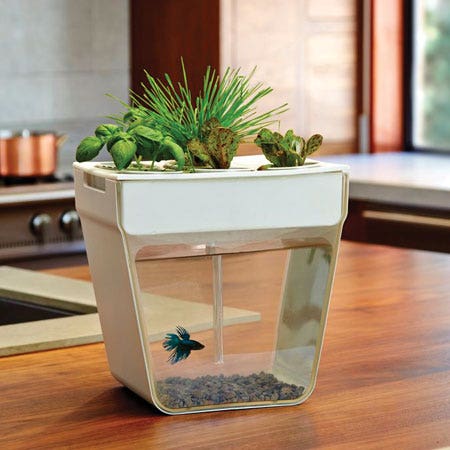
Educational Value
By exploring the educational value of indoor gardening, individuals can further enhance their understanding and appreciation of plant growth and cultivation.
Indoor gardening offers a unique opportunity for hands-on learning, allowing individuals to witness the different stages of a plant's life cycle up close. From seed germination to flowering and fruiting, each step provides valuable insights into the complexities of nature.
Moreover, indoor gardening encourages experimentation and problem-solving, as individuals learn to adjust environmental factors such as light, temperature, and humidity to optimize plant growth. This educational journey fosters critical thinking skills, creativity, and a deeper understanding of the interconnectedness between plants and their environment.
Additionally, indoor gardening promotes environmental awareness and responsible stewardship, as individuals learn about sustainable practices such as composting and water conservation.
Wellbeing Improvement
One significant benefit of indoor gardening is the improvement of overall wellbeing. Indoor gardening has been proven to have positive effects on mental health and can contribute to a sense of calm and relaxation. This can be especially beneficial in high-stress environments such as the workplace, where indoor gardens can create a peaceful atmosphere and help reduce stress levels.
Additionally, indoor gardening can have numerous benefits for children, as it provides a hands-on learning experience and teaches them about responsibility and nurturing. It can also improve their mood and help them develop a sense of connection with nature.
Mental Clarity
The improvement of mental clarity is another notable benefit that indoor gardening can provide. Engaging in this activity can lead to improved focus and cognitive function, allowing individuals to think more clearly and make better decisions.
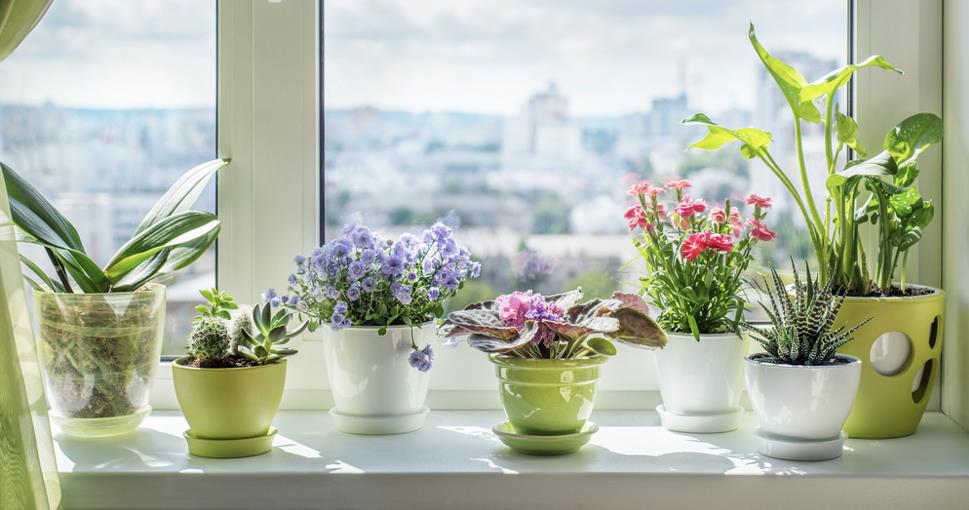
When we connect with nature and care for plants, it has a positive impact on our mental well-being. Indoor gardening provides an opportunity to reduce stress and anxiety, allowing our minds to relax and recharge. As we tend to our indoor plants, we become more present in the moment, allowing our thoughts to become clearer and more focused.
This increased mental clarity can have a profound effect on our overall productivity and performance, both at work and in our personal lives. So, if you're looking to enhance your cognitive abilities and improve your mental clarity, consider indoor gardening as a valuable tool in achieving these goals.
Low Maintenance
Indoor gardening offers the advantage of low maintenance, making it an accessible and time-efficient activity for busy individuals seeking to enhance their mental clarity and well-being. With low-cost and space-saving options, indoor gardening allows you to enjoy the benefits of nurturing plants without the need for extensive care.
Here are some reasons why low maintenance indoor gardening can be beneficial for you:
- Minimal watering requirements: Certain plants, such as succulents and cacti, can thrive with infrequent watering, reducing the time and effort needed for maintenance.
- Slow growth: Indoor plants generally grow at a slower pace compared to outdoor plants, meaning less pruning and trimming.
- Pest control: Indoor environments are typically less prone to pests, minimizing the need for frequent pest control measures.
- Low-cost materials: Indoor gardening can be done using inexpensive materials like recycled containers or repurposed items, making it budget-friendly.
- Space-saving options: Compact plants and vertical gardening techniques allow you to maximize your indoor space, making it suitable for small apartments or limited areas.
Frequently Asked Questions
How Can Indoor Gardening Improve Air Quality?
Indoor gardening can improve air quality by reducing pollutants and increasing oxygen levels. Plants naturally filter the air, removing toxins and releasing fresh oxygen. This can benefit those with allergies and improve mental health by creating a calming and soothing environment.
What Are Some Ways That Indoor Gardening Can Help Reduce Stress?
Indoor gardening has been shown to have significant benefits for mental health and stress reduction. Engaging in gardening activities can provide relaxation and serve as a form of therapy, promoting overall well-being and a sense of calm.
How Does Indoor Gardening Contribute to Aesthetics in a Living Space?
Indoor gardening contributes to aesthetics in a living space by allowing for creative plant arrangements that enhance interior design. The impact of greenery on the overall ambiance creates a sense of freedom and adds a touch of nature to the environment.
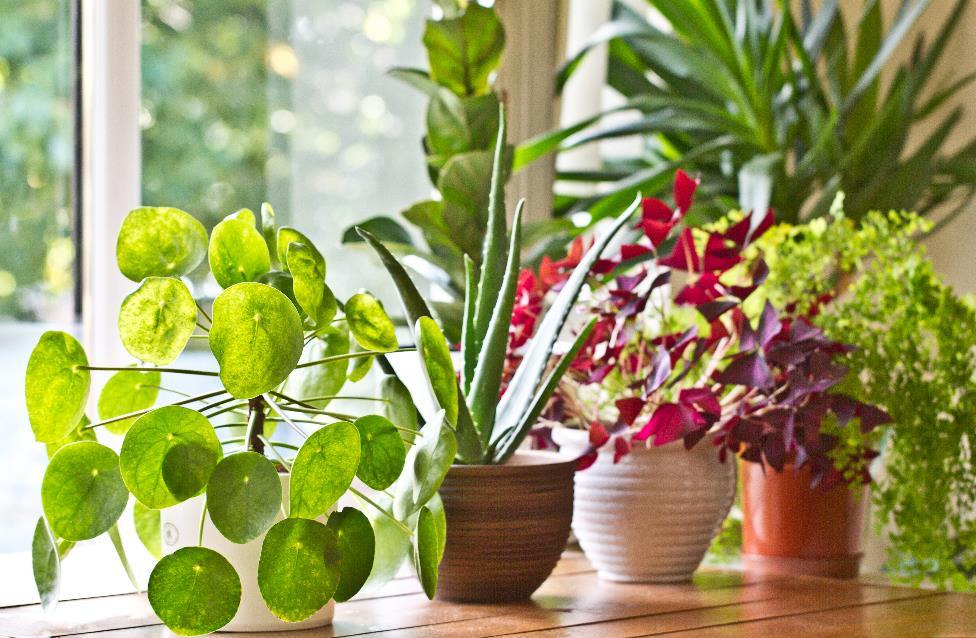
What Are the Benefits of Year-Round Gardening Indoors?
Year-round gardening indoors offers improved mental health and cost savings. It allows individuals to connect with nature, reduce stress, and improve air quality. Additionally, growing your own food indoors can save money on groceries and promote a sustainable lifestyle.
Indoor gardening promotes independence and enhances mental well-being by providing accessible gardening options for individuals with limited mobility. It allows them to experience the joys of gardening and reap the benefits of nurturing plants, even in a confined space.
 Business & FinanceHealth & MedicineTechnologyLifestyle & CultureScience & EnvironmentWorld NewsPrivacy PolicyTerms And Conditions
Business & FinanceHealth & MedicineTechnologyLifestyle & CultureScience & EnvironmentWorld NewsPrivacy PolicyTerms And Conditions
